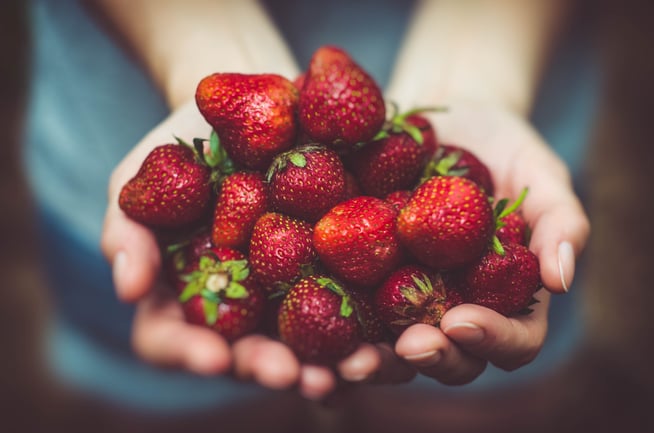
With a horticulture business, you have a front-row seat to the beauty of the earth’s fruitfulness.
Whether you grow fruits and vegetables to feed others, or you’re a gardener who loves to cultivate beautiful and rare plants, the labours of horticulture are quite satisfying.
However, while your field, orchard, or garden is your passion, the realities of business can be a strain... such as figuring out how to keep operating costs and utilities low, while keeping or increasing your level of productivity. Many Kiwi growers share that concern, and many are finding the answer in a natural resource: the sun’s energy.
Solar energy is a great way for NZ growers to maintain healthy, high-yield farms at lower costs.
An array of solar panels, sized just right for your business, can meet all of your essential electricity needs while reducing your dependence on the grid and lowering your carbon emissions. You can often see a quick impact on your monthly bills, all while helping to pioneer a newer, ‘greener’ New Zealand agriculture industry.
Keep reading to learn how solar energy can help your horticulture business thrive.
Irrigation: The main energy drawcard for horticulture farms
Horticulture farms come in many shapes and sizes. But there’s one thing that’s common amongst all growers: the need for irrigation.
As necessary as irrigation is, it can be a huge drain on your finances and energy capacity. Installing new power lines to reach remote parts of your farm can be prohibitively expensive. And especially during the hot summer months, when your plants are thirstiest for moisture, a solution that consistently helps water your fields at a lower cost might be most welcome.
Here’s where solar can literally save the day!
A solar photovoltaic (PV) panel system, whether installed on the roof of a structure (such as your packing house) or ground-mounted, can meet your irrigation needs year-round. Irrigation powered by the sun perfectly takes advantage of the summer months, in particular. The more sunlight your solar panels receive, the more power they generate...which means having solar-powered irrigation in place when the hotter months come around is probably the smartest way imaginable to increase your farm’s energy efficiency.
Whether you use simple sprinklers or drip irrigation methods, or even sub-irrigation or large centre-pivot systems, a solar array of the right size can help ensure your crops are reliably watered. Also, solar-powered water pumps, which are easier to maintain and longer-lasting than traditional pumps, can be easily matched to your irrigation setup.
Other solar power benefits for horticulture agri-business
Solar installation can supply power for all essential horticulture functions that would normally require electricity, including just about any grid-connected machine or plugged-in equipment.
Many operations that run on fossil fuels can be replaced by solar-powered versions. And, solar energy can charge batteries for appliances that need them.
While irrigation is often thought of as the most obvious energy hog in horticulture, there are other specific areas in which solar truly helps growers cut costs and stay productive.
Harvesting. In the harvesting process, solar can:
- Power tools for digging up tough tubers, shrubs, and root vegetables,
- Power your mechanical washing system,
- Run humidifiers and air heaters for curing crops,
- Heat water for hot water treatment dips (either with thermal solar water heaters or through PV-supplied electricity to conventional heaters),
- Power your drying machines, and
- Supply energy for weighing and packaging machinery.
Solar-powered fans may also be useful for controlling temperatures inside your packing house, in order to maintain the optimal conditions for your specific kind of produce.
Cooling. To protect the quality of your harvest, cooling is easily your most power-hungry process besides irrigation — and likely a place where solar power can offer you some huge savings. For post-harvest cooling, solar energy can:
- Run forced-air (FA) cooling by powering electric fans,
- Run hydro-coolers, including immersion hydro-coolers that utilise refrigeration and active water pumps,
- Refrigerate entire cold storage rooms, and
- Run battery- or ice-powered solar chillers of any specified size.
Drying. Even the process of drying your produce, to preserve harvest quality and meet food grading requirements, can be helped with solar. Sunlight energy can power specialised heat-assisted dryers, as well as any other electrical appliances used in drying.
Besides all of these applications, power from the sun can be used for lighting and heat in your greenhouse nursery and other buildings, including your home and your workers’ homes. A properly-sized solar installation, which a solar energy consultant can calculate for you, will be sure to meet all of your personal and business power needs.
Solar power is a great solution for horticulturalists who want to reduce energy costs, and still have all the power they need to run their businesses. As a grower, solar can help you operate a ‘cleaner’ farm at lower costs, cultivate more of the earth’s goodness, and contribute to a healthier, more sustainable New Zealand.








